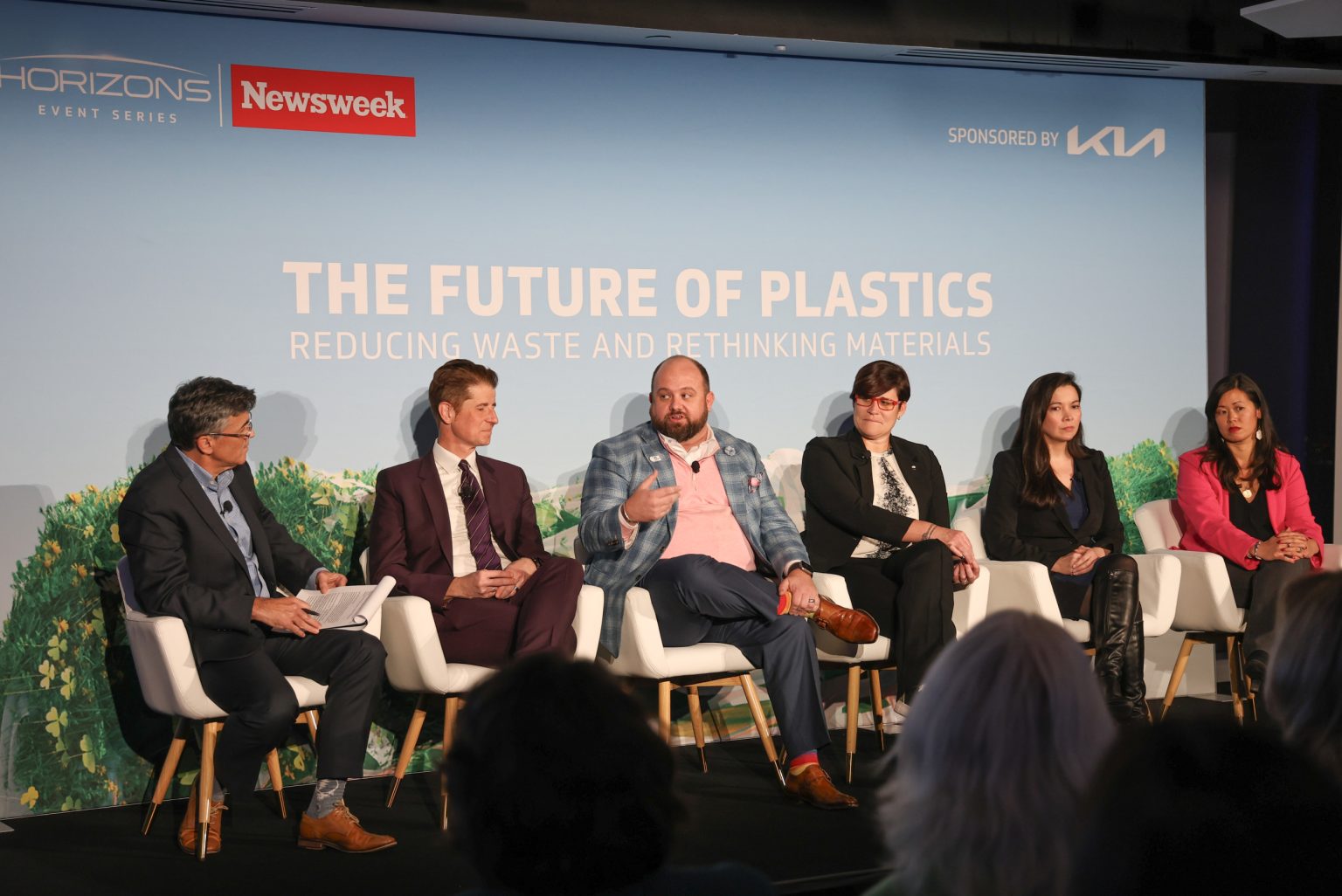On December 4, 2023, a panel discussion titled “The Future of Plastics: Reducing Waste and Rethinking Materials” took place at One World Trade Center in New York City, hosted by Newsweek’s Environmental Sustainability and Governance Editor, Jeff Young. This event followed global negotiations held in Busan, South Korea, where the United Nations failed to establish a cohesive treaty aimed at regulating plastic waste management. Young led a panel composed of experienced professionals, including Jessica Long of Closed Loop Partners, Erin Simon from the World Wildlife Fund, Jonathan Quinn from the U.S. Plastics Pact, Mars Global’s Allison Lin, and Dr. Leonardo Trasande from NYU’s Center for the Investigation of Environmental Hazards. These discussions presented a platform for examining the current state of plastic pollution and exploring innovative solutions that address this ongoing crisis.
In his introductory remarks, Dayan Candappa, Newsweek’s Chief Strategy Officer, acknowledged the discouraging media narrative following the treaty negotiations. He expressed a common sentiment of uncertainty regarding humanity’s ability to address significant environmental challenges. However, the panelists maintained a more optimistic perspective about the future. Erin Simon noted the importance of the collective mobilization for a robust treaty even without a successful conclusion from the negotiations, emphasizing the need for a treaty that possesses “a lot of teeth.” She highlighted that the text discussed in Busan had commendable elements that could support future negotiations if leveraged appropriately.
Allison Lin articulated the need to prioritize quality over expedience regarding treaty agreements. She advocated for taking additional time to forge a solid treaty with enforceable global obligations, rather than rushing to create a weak framework that would hinder substantial progress in combating plastic pollution. Lin underscored the importance of harmonizing regulations globally, which could involve standardized product design and the phasing out of hazardous materials. These suggestions reflect a growing consensus among significant stakeholders that effective regulation is critical to driving meaningful change in plastic waste management.
The discourse also touched on the pressing state of U.S. recycling, which is often criticized as inefficient and inadequate. With a shocking statistic from the United Nations Environment Programme indicating that only 9% of the 400 million metric tons of plastic produced globally each year is recycled, the panelists conveyed a sense of urgency regarding improving recycling practices. Jonathan Quinn indicated that not only must these conversations revolve around policies but they should also engage consumers effectively. The thread of the conversation revolved around identifying what is feasible and necessary to involve stakeholders across all levels.
Dr. Trasande emphasized the significance of utilizing independent science in future treaty discussions, positing that reliance solely on consensus could dilute the effectiveness of the treaty. He expressed gratification in the current pause of the process for treaty discussions, suggesting that refining the underlying issues could ultimately yield a more comprehensive agreement. He called for transparency regarding any potential conflicts of interest and advocated for the best available science to underpin future dialogues.
As the panel discussion came to a close, participants underscored the viability of transitioning to a circular economy—a system that seeks to minimize waste and maximize resource use—specifically regarding plastic. Jessica Long highlighted that while critiques of recycling systems often highlight their ineffectiveness, she believes this can be remedied through strategic investments in better infrastructure and business models that prioritize recycling and reuse. She articulated a sense of hope, insisting that data, scientific evidence, and innovative solutions are already in place to address the plastic pollution crisis efficiently. Panelists collectively asserted that there is potential for a future where collaboration among diverse stakeholders could yield impactful environmental solutions, promoting a sustainable world for generations to come.


